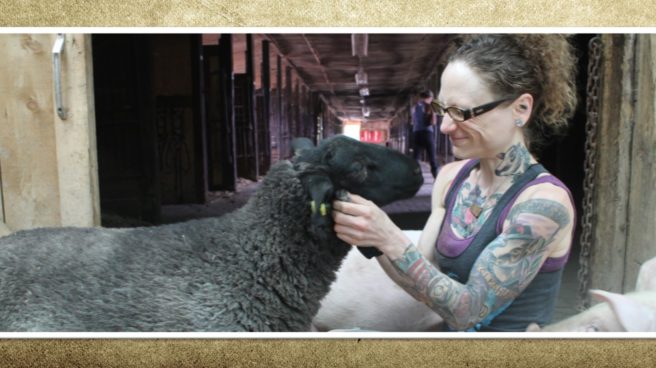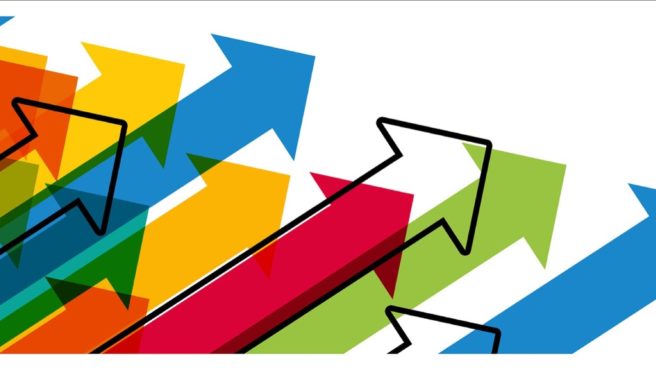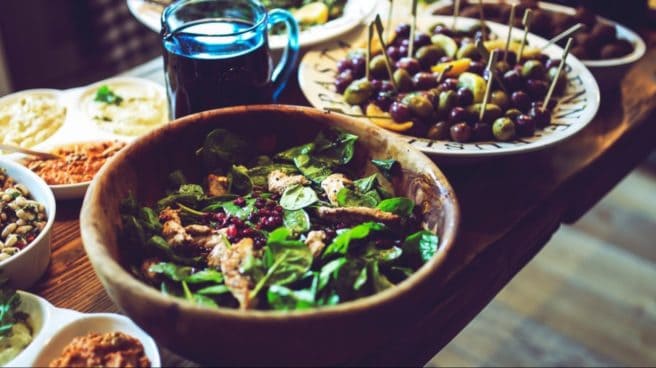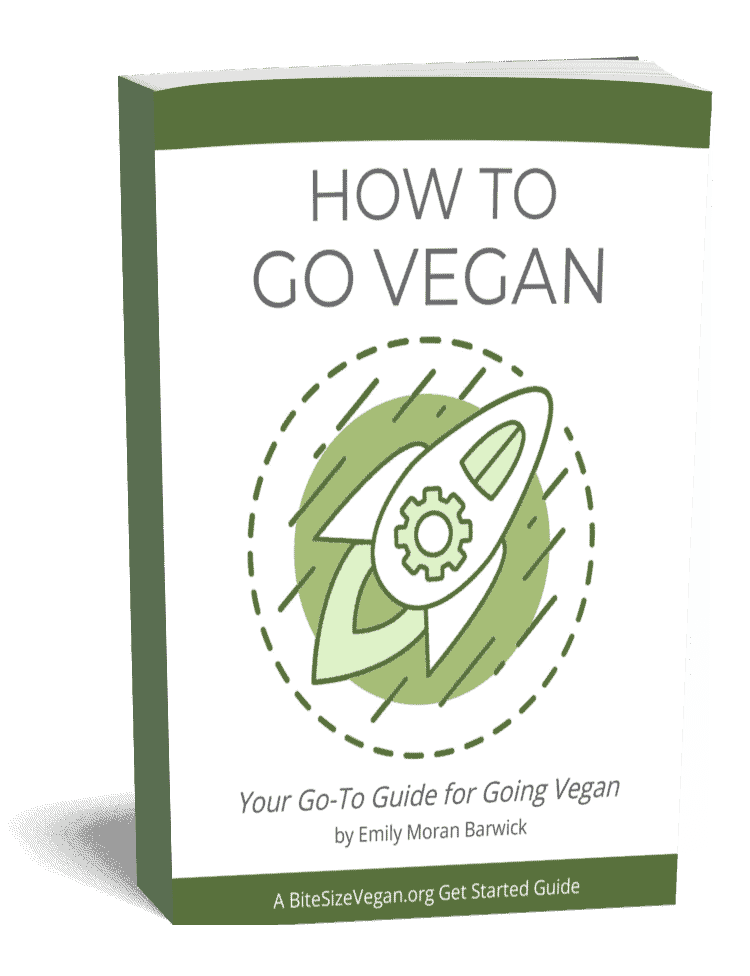Want your presents to reflect your ethics? Want to make your holiday shopping quick, easy, and 100% vegan? How about 10% off all your purchases? Not sure where to get guaranteed vegan gifts at a decent price?
There are honestly countless reasons to go vegan: ethics and morality, environmental impact, societal impact, specifically world hunger, and personal health and appearance, to name a few. Yet not everyone who goes vegan stays vegan. Do some of these reasons have less “sticking power” than others? Are your health and appearance enough motivation to keep you vegan? Or does it need to go a bit deeper? Hear vegan activist Gary Yourofsky’s take on this in this installation of the Gary Yourofsky interview series.
To hear Gary’s full answer, be sure to watch the video, but here are select nuggets:
“[Health] is a selfish reason to be vegan. I’m always honest, I don’t pull punches. Veganism is about altruism—doing something kind for somebody else. When I’m teaching, I’m teaching people to be unselfish—to think about the cows who have their babies stolen from them in the dairy industry, who are raped every year; think about the baby pigs having their teeth cut off; think about the animals’ health—don’t think about your own health.”
So is going vegan for health a horrible thing? No. Gary goes on to say:
“At the end of the day, as long as you’re vegan, I don’t care why you’re vegan, I don’t care what type of vegan you are–raw vegan, junk food vegan doesn’t matter to me. The animals don’t care why you don’t eat them.”
the problem arises with what will keep you vegan:
“My concern is the people who do this for health reasons are the ones that don’t stay vegan or the ones that end up cheating. I’m an ethical vegan for 18 plus years. I don’t cheat being vegan like I don’t go out on Tuesdays and molest kids and rape women, okay? It’s evil and unethical to me so I would never cheat. But the health-based vegans—hey listen, if you’re 6 days a week vegan and on day 7 if you want a double-cheese pepperoni pizza, I doubt it will do much health-wise. It probably won’t bother your health, but ethically speaking, when it comes to the double-cheese pepperoni pizza you’ve committed a crime, you’ve now viewed animals as your commodities, you’ve now taken someone else’s life for you own pleasure and that is unjust and that’s what I wanna teach people.”
I personally agree with Gary on this. When people go vegan solely for health it’s often not enough on it’s own to keep them vegan. Going vegan for health is not a bad thing by any means. As Gary said, it’s not what brings you to veganism that’s important–it’s what keeps you here. Fortunately there are people who come to veganism for health reasons and stay long enough for the ethical aspects to sink in–and it’s that conviction that keeps them vegan. It’s the difference between being on a vegan diet and being vegan.
A vegan diet is something you can go on and off of. But being vegan is a lifestyle. It’s an ethical foundation. If you fall off the vegan health wagon you may feel bad for ruining your diet or gaining a couple pounds. But the real ethical impact of returning to animal products is what will solidify your commitment to being vegan–the fact that those products are literally the pain, suffering and lives of other beings. They’re not “cheat food” or “one time treats.” They are processed and packaged abject misery.
If you are going to fall of the health wagon, there’s plenty of “cheat food” that is vegan. You can eat the most decadent, sinful food you desire on a vegan diet. Just check out this video for some epic options. The point is, you don’t have to deprive others of their lives in order to not feel deprived in your diet.
So if you want to go vegan to look good and have a flat tummy, more power to you–the animals don’t care if your motivation for not eating them is to have a cute butt. But, in order to stay vegan, you might have to dig a little deeper. And hopefully during your cute-butt quest, you’ll make that connection and stay vegan for life.
I’d love to hear your thoughts on this issue. If you’re vegan, is your reason for staying vegan different than your initial reason for going vegan? If you’re not vegan, what reason would motivate you the most to make a transition? Do you think being vegan for health alone can be a lifetime commitment? let me know in the comments!
— Emily Moran Barwick







Having gone vegan “for health reasons” myself, I can say that Gary is wrong…and right.
Let me start with where he is right (by the way, what if everyone in every debate on any topic, started by first saying what parts they agree with, first? What kind of culture, society, and planet would this lead to? Not a bad habit, to try to aim to practice, I think)
Where he is right:
a) Morally: Morally there is a supremely strong case for ethics to be at the foundation
b) Factually: The facts are there (that the person going vegan for health reasons or the person not going vegan, might not know about) facts about cruel treatment, etc
c) Pragmatically for the individual, Tactically for what movements advocate: I agree that “all other things being equal” a person now vegan, is more likely to stay vegan if their reasons include ethics (again you can say “at the foundation” but even “includes”)
Wrong? First, calling concerns about one’s health “Selfish” is a bit like saying you’re “selfish” if you see a car about to hit you and you jump out of the way. Ok, I guess that *is* selfish, but most people would agree with me that calling that person jumping out of the way “selfish” is a strange way to frame it. Second, there are very non-selfish things about it (avoiding suffering by your friends and family who see you get sick) and even more non-selfish reasons (long term health costs for society)
I am not convinced that ““my concern is the people who do this for health reasons are the ones that don’t stay vegan or the ones that end up cheating” is actually true. I never cheated. Guess what? Health issues like “eating dairy will make me either physically sick or feel bad” are a great motivation to not cheat. So I never cheated on dairy (or meat or eggs either. On honey I didn’t cheat but took a little longer to make the decision that I want it out)
I was pesco vegetarian, then vegetarian (never liked eggs) then cut out dairy. That was 1994, by the way, Gary. Finally cut out honey, and learned not to make mistakes (hidden misleading “ingredients” that fools you) and learned more about environmental (which are themselves a kind of ethical) and “ethical” (meaning ethics against killing) solidified in me; again in steps: first “no way it is ok to kill cows and pig, that’s horrible” and “killing chickens? that’s not nice” turned into “that’s horrible too” then fish, etc.
Until there is SOLID carefully done research, none of us can be sure who is more likely to “cheat”, but since Gary gave his impression (to be fair he didn’t claim he was sure, just said it’s his “concern” so maybe he was not claiming this is scientifically known but only his suspicion, of who is more likely to “cheat”)
Yes, tactically “all other things being equal” having one more powerful reason to stay vegan, would help.
But all things are not equal. Here are two pointing in the other direction:
1) I can’t tell you how many cases I have seen or heard, some online, some in person, of people (especially young people but of all ages really) who learn the truth overnight and are (righly) horrified at the animal suffering and leap into veganism without having, or taking the time to research health and they get sick or feel bad or are hungry or are tempted to cheat, and they *quit* veganism,…or they cheat as Gary put it, feel guity but cheat…
Don’t tell me “oh they shouldn’t do it wrong, they should do it right!” because I agree with you. Don’t just say “they should have researched ethics *and* nutrition” because I agree too…that does not change the fact that so *many* who leap in almost overnight, are, not suprisingly, often less sustainable. I have no research to tell you the numbers any more than Gary does, so like him, I can only say what I have seen and that it is not “Everyone” but it is many, many examples.
Lesson is, by taking it slowly enough to research, so they learn their bodies, learn the diet, learn nutrition, and give their bodies time to transition and adjust, they might be more likely to make it sustainable and make it life long, even if they take a few weeks, months or even a year plus to finish the transition from omni to semi vegetarian, to vegetarian, to vegan diet, to vegan diet plus vegan ethics.
Secondly, we might also lose out on “converting” people (ha ha..I mean reaching out to omnis) if they think they better agree on ethics or else we think they are “selfish” …and we don’t “Accept” them because they are “selfish”
That could turn people off…wouldn’t it turn you off? And turn people away…
If they want to learn about veganism for “selfish” reasons like not wanting their bodies to go to s**t (again, not really “selfish”) I say **welcome, friend** and want to help them even if it’s “only” for their health.
Or “only” for the environment. Or “only” for health and environment.
Why call them “selfish” or insult them like that?
Then, over time, they might listen to ethicadl reasons that their friends and supporters, the ones who *accepted* their veganism even when it was “only” for health, they might listen to us and I think are very likely to listen, actually, when we bring up facts about cruelty and even killing itself, being ethically unjustified.
I wish people would stop using the term “vegan diet” and instead use the term “plant-based diet” since veganism is so much more than a diet. People who change their diet for health reasons or reasons other than ethics may still wear silk, wool, leather, eat honey, visit zoos and circuses etc. Vegans don’t do these things.
i agree with you heather- there is a huge difference between eating being and being vegan!
Heather,
I do agree we should as Gary says in another video, educate people, about animal rights ethics even if they came to veganism for health or for ecological ethics
By the way if I’m not mistaken, we can’t blame omnis for the term vegan referring specificaly to diet, it’s my undestanding that as Online Etymology Encyclopedia puts it, “coined by English vegetarian Donald Watson (1910-2005) to distinguish those who abstain from all animal products (eggs, cheese, etc.) from those who merely refuse to eat the animals.”)
But most of all, I’m curious: Emily herself in a video said that if someone “goes vegan” but keeps wearing a pair of leather shoes to wear them out rather than instantly throwing them in the trash, she said she thought that was fine.
But I wonder, if someone changes their diet to “vegan” or “plant based” and doesn’t use wool or silk or fur or any leather other than let’s say two last pairs they want to wear out before throwing away, then what do you propose we call them? When those things wear out and they buy a replacement pair of shoes and replacement belt (replacing the last two items) they are “vegan” but until then?
What do you propose we call them? Or until they replace the very last two items, should we maybe put up with the term “vegan” but just make themwear a scarlet letter of shame every day on their shirt? ;-)
Because informing “for health” people (like I used to be) about ethics, I’m 100% for, but tactics that will turn people off and away, by a rigid enforcement of change of terminology (which I hope you’re not advocating) that I don’t think help the animals :(
“In August 1944 several Vegetarian Society members, including Donald Watson, asked that a section of its magazine be devoted to non-dairy vegetarianism. When the request was turned down, Watson suggested setting up his own quarterly newsletter; thirty readers sent him a shilling to fund it.[25]..Watson issued the first newsletter, Vegan News, in November 1944 ”
So it was started for “non-dairy vegetearianism” nothing there about silk or avoiding circuses.
Of course I agree with “avoiding all animal products” I’m just saying it’s not some omni that we can blame
And when I see huge amounts of time, energy, space, and in-fighting in so many areas about terminology (like “transwoman” versus “trans woman” as two words) and so much hurt feelings and energy that could be used to change habits and rights and behavior, focused so much on terms, in so many movements, it makes me very sad. It strikes me as (very) far from ideal, as far as balance of energy and tactics :(
In tthis particular movement, I think we should put the (non-human) animals ahead of too much energy or time or emotion debating terms.
I absolutely agree with you Heather. Veganism is not only what we eat but how we live – with compassion and respect for all living beings or not. If someone eats only plants yet uses animals every other way, this has nothing to do with compassion. GY completely avoided those subjects in this video and it is very disappointing. Despite the fact that the majority of evilness agains non-humans is done to the farm and other animals used as food for humans, there are millions of other animals suffering horribly for all kinds of different reasons. Those non-human animals are not less important than those raised as “food”. Veganism is about an ethical way of living as whole not about an ethical way of eating alone.
In regards to that 5 minute vegan video on people being vegan for health reasons…I did just that and found that after about a year or so I started to see animal food products as body parts and not just commodity. This is without reading any books or blogs or anything on veganism or animal rights. This is just my personal anecdote but I think it may be true to some others as well. I think the biggest reason why people don’t have any internal qualms eating meat or consuming other animal products is the idea of a package of meat in the supermarket is so engrained as a food product and not a piece of flesh. My experience showed that just simply not participating in that part of our culture and economy, I was able to see it more objectively.
wow that is awesome! what a cool experience- you naturally started to see the reality of animal products. so glad to hear it and i hope that happens for others. maybe when we are no longer busy justifying our consumption of animal products, we no longer NEED that denial and then naturally are able to see what was in front of us the whole time.
I can attest to the power of just eating a “vegan diet” without having any ethical considerations. I started eating a vegan food to loose weight and now promoting the vegan LIFESTYLE has become my lifeblood. From selfish beginnings I gradually made the connection to the ethical argument of veganism. Now I can say live vegan. :)
that’s fantastic Chasley! i’m thrilled that you made that connection and are out veganizing others!